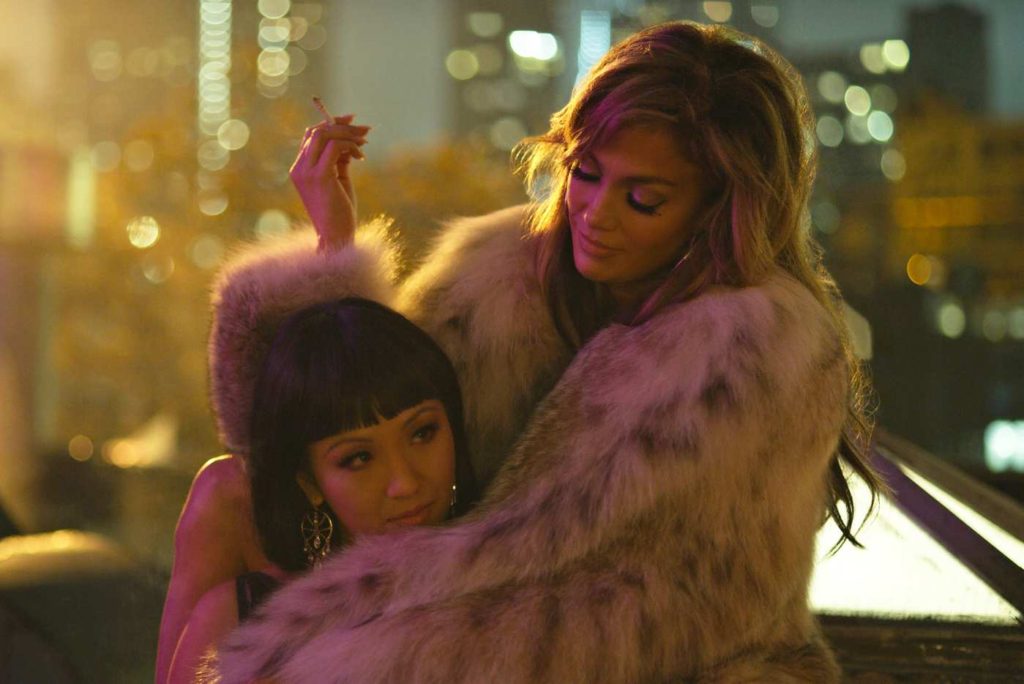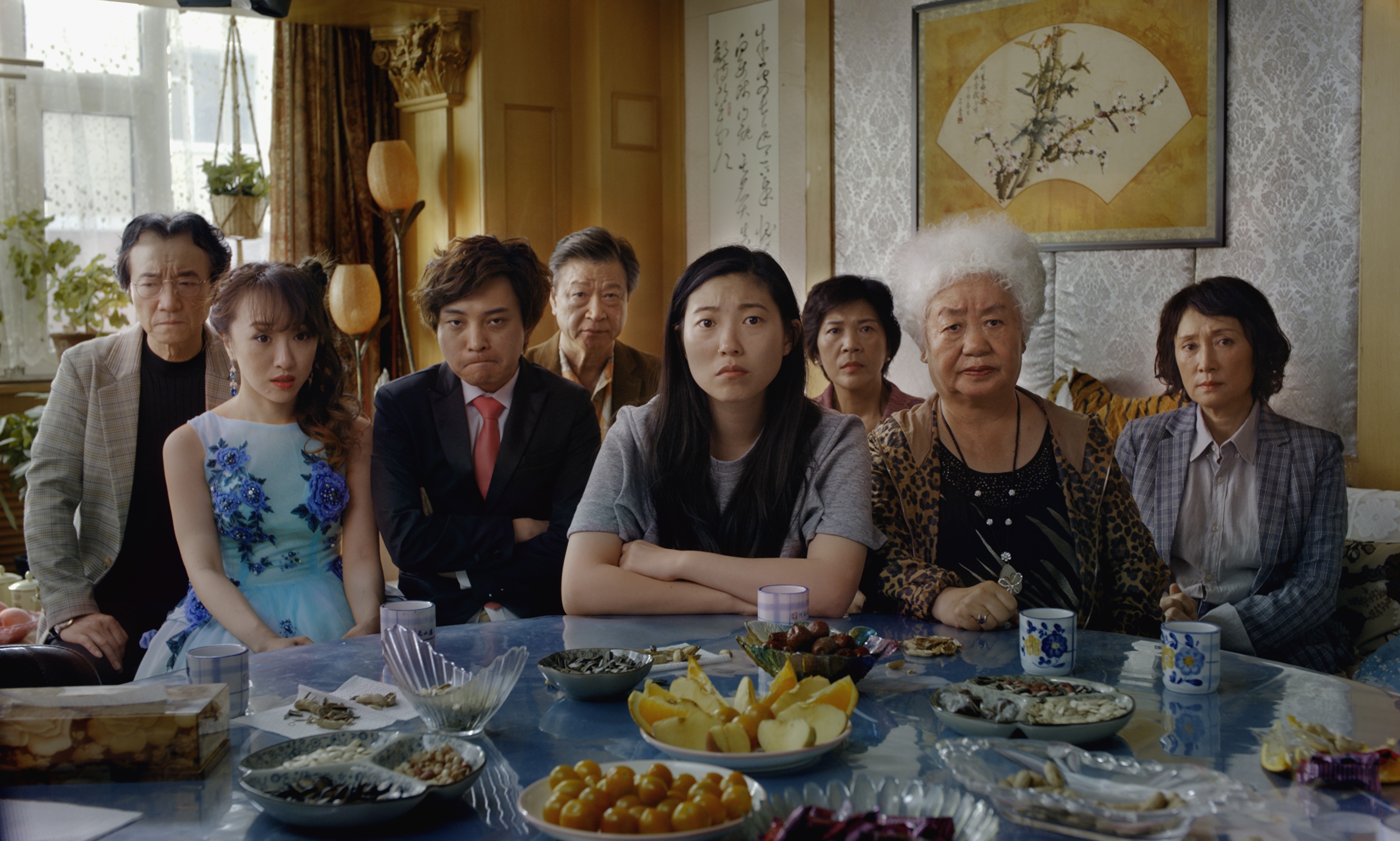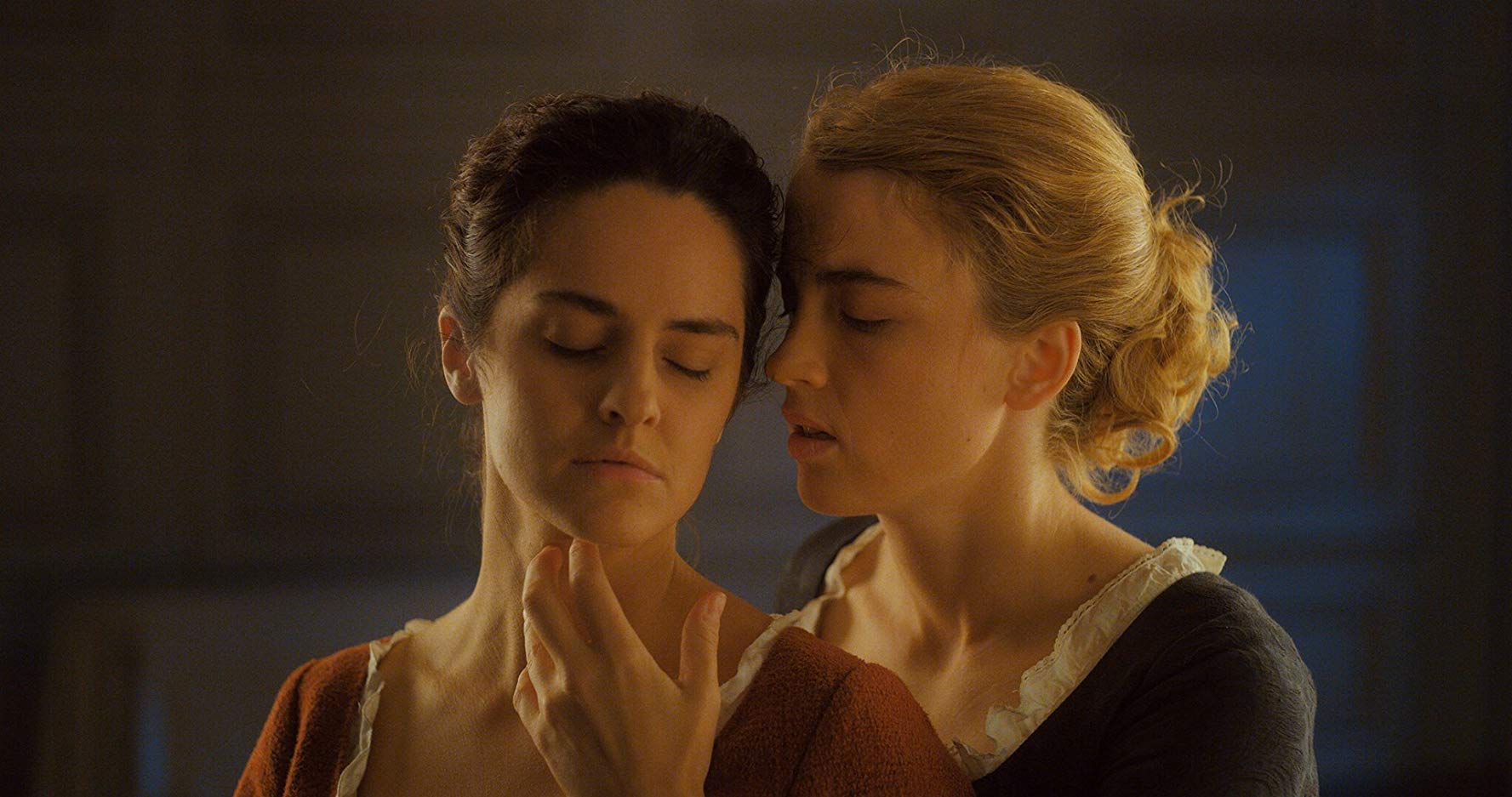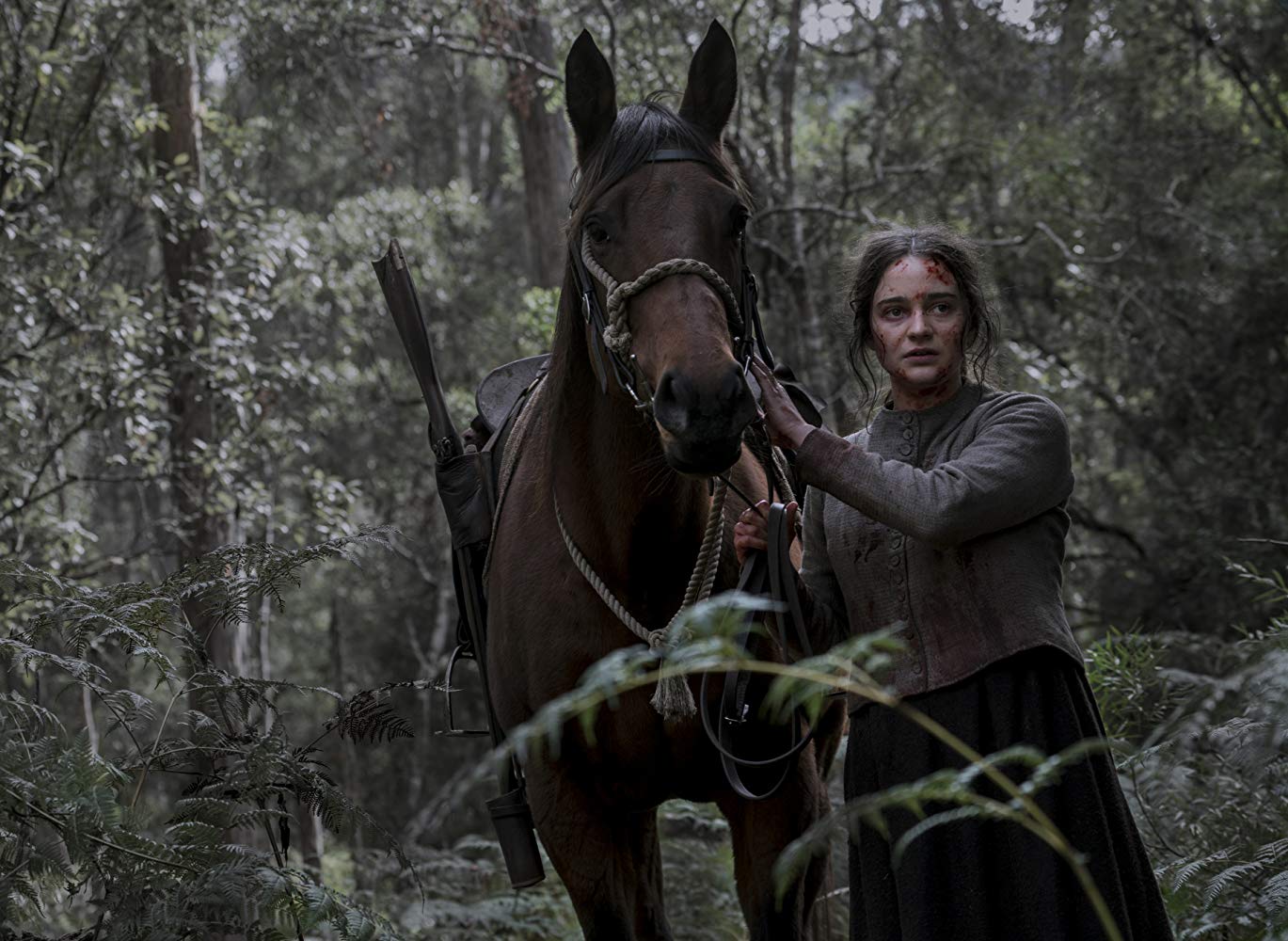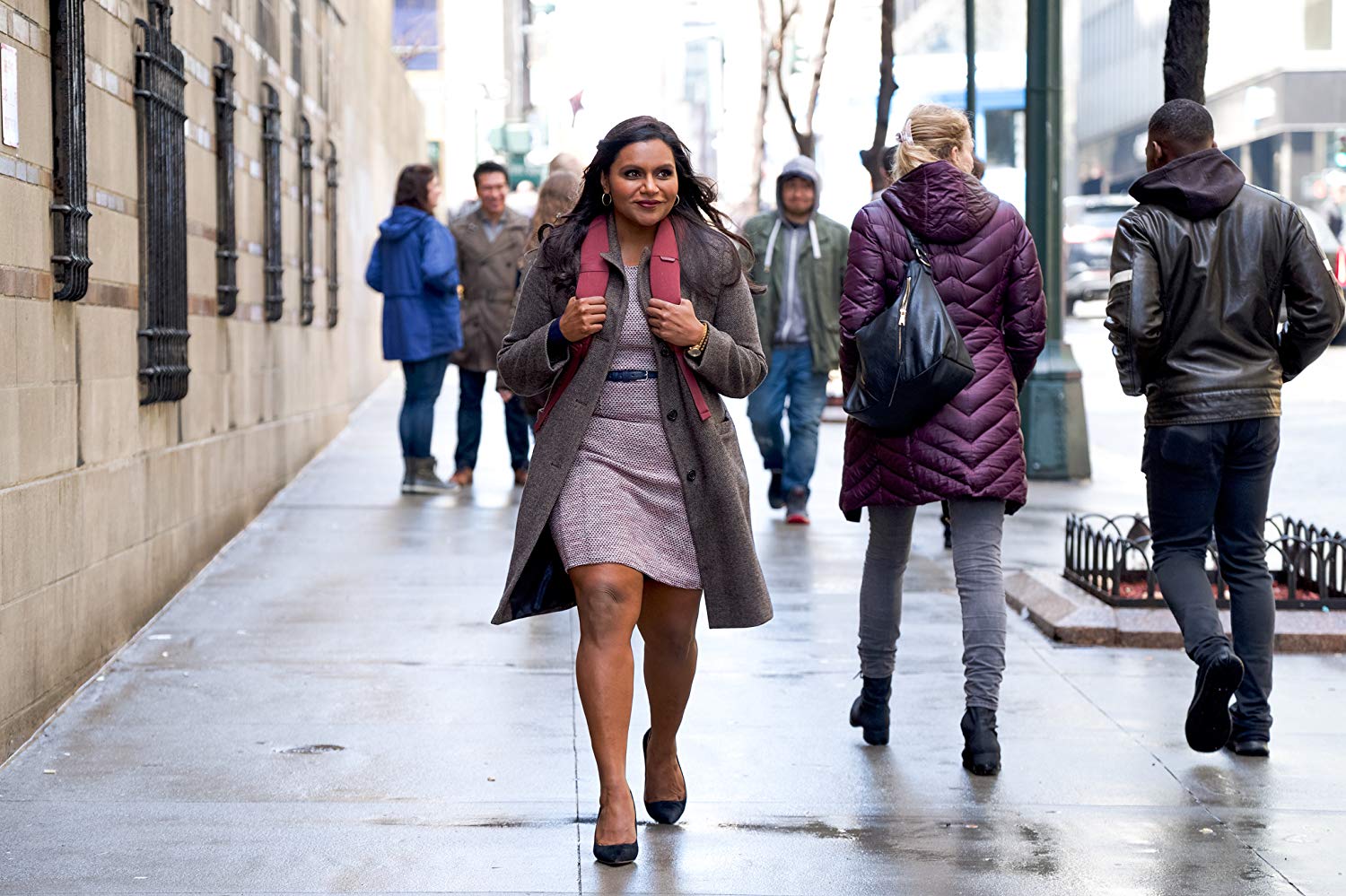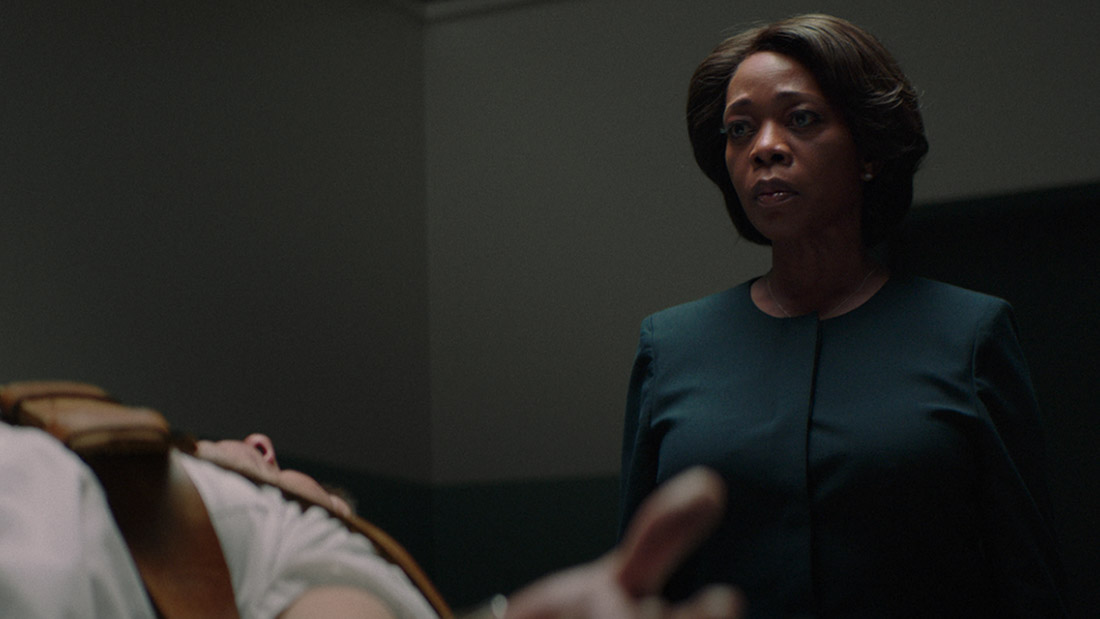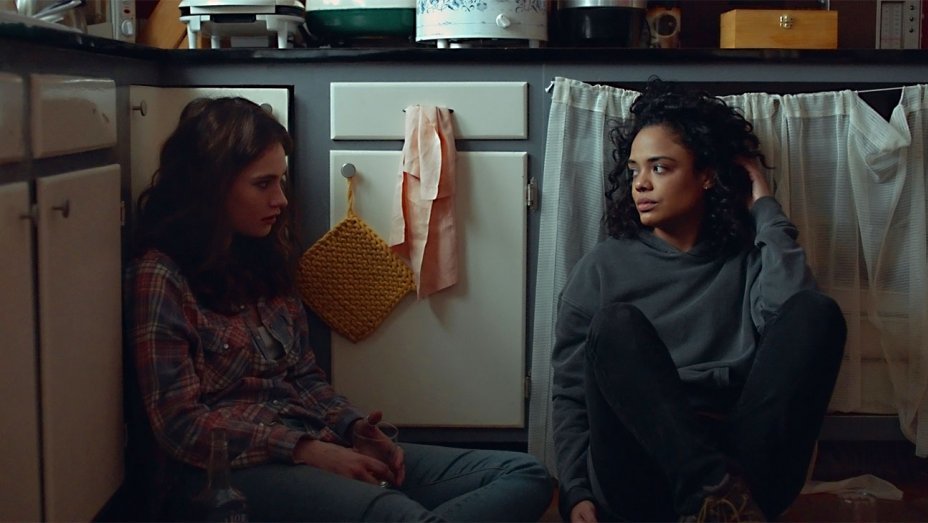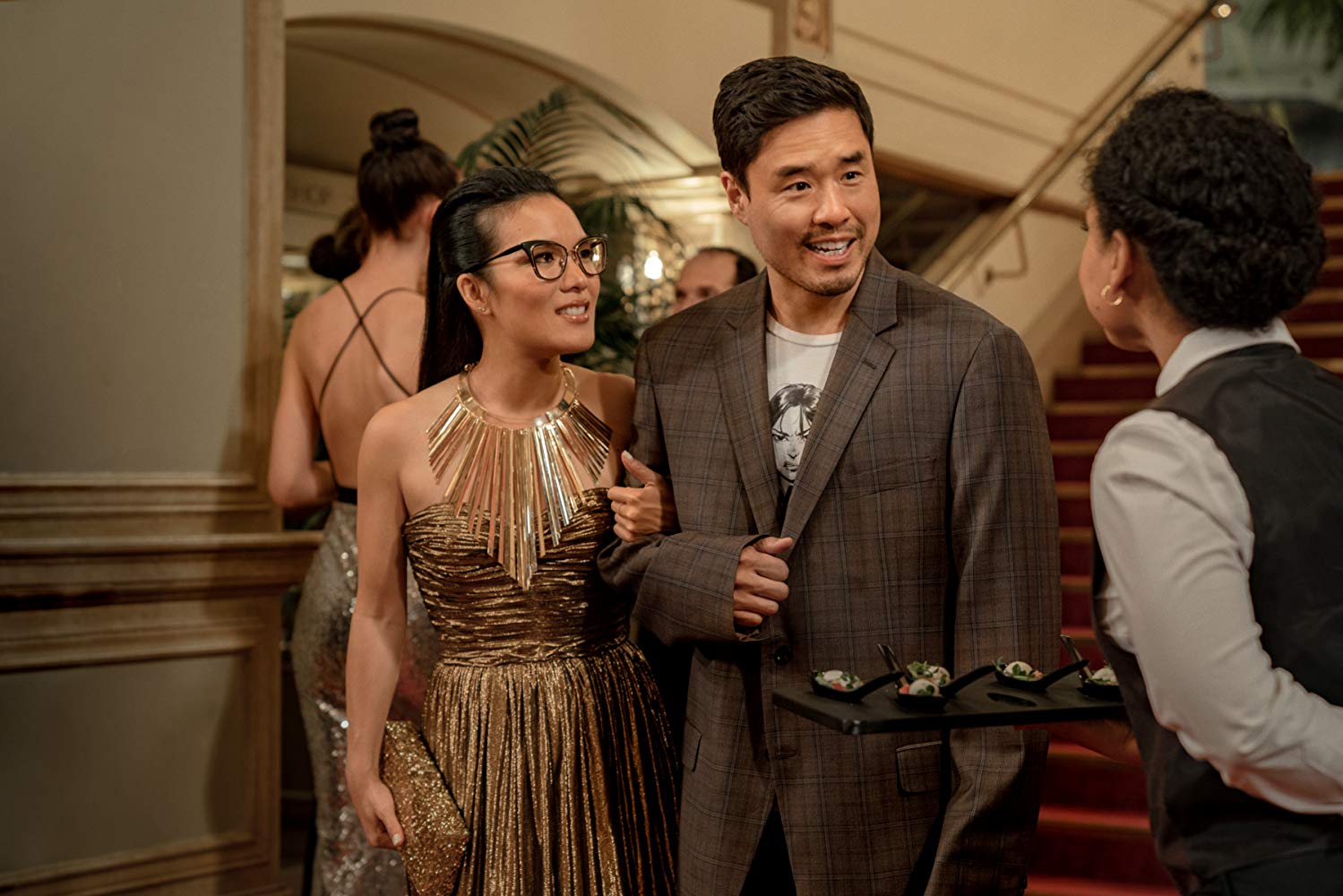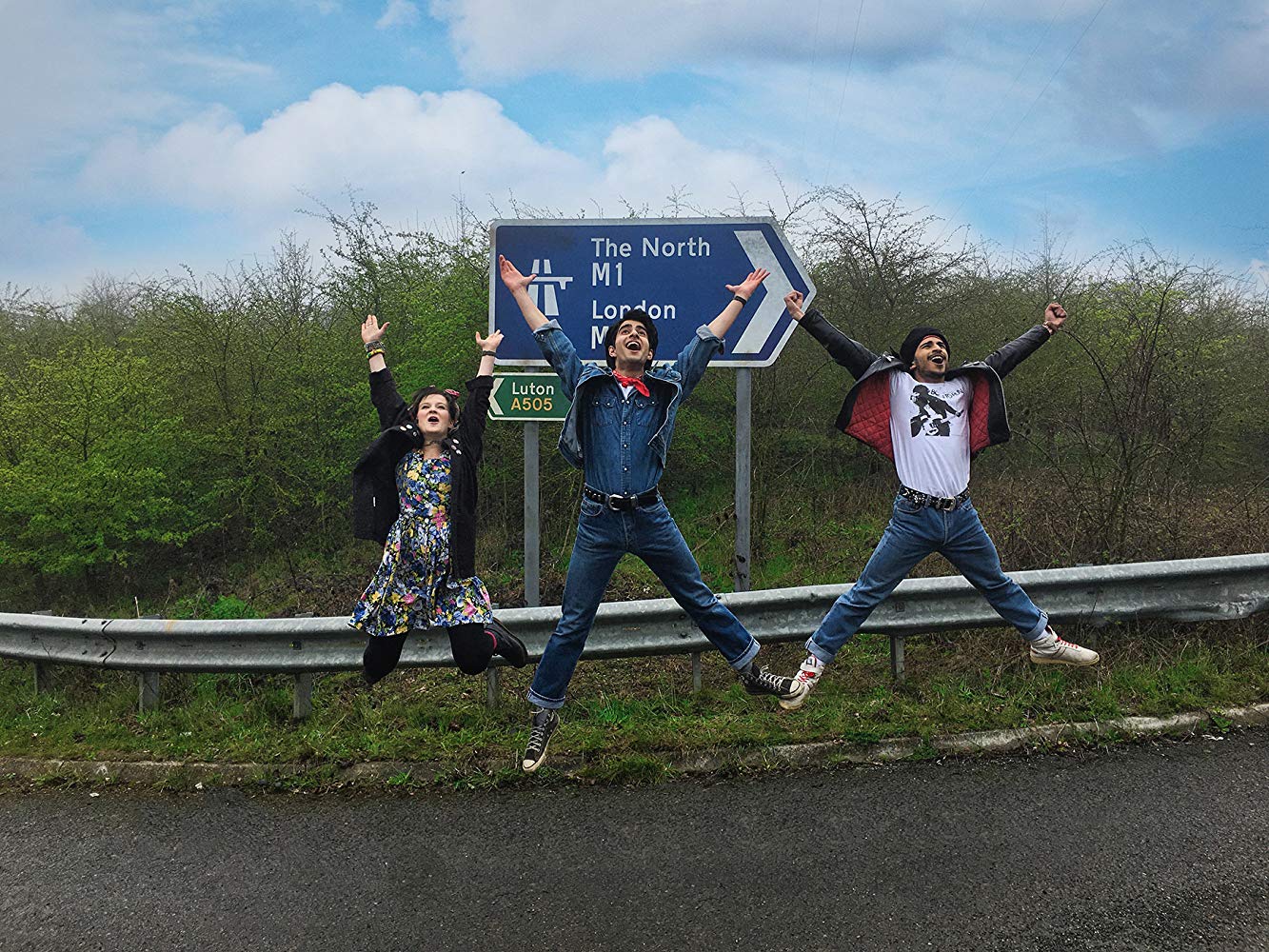Adaptations of classic novels, feminist takes on the One Crazy Night trope, true stories based on actual lies — 2019 has been a superb year for women in film. From “Portrait of a Lady on Fire’s” exploration of the artist’s gaze to “The Nightingale’s” no-holds-barred look at rape culture to “Late Night’s” send-up of diversity hiring, movies by and about women tackled the political, the personal, and the personally political. Many of them, including “Late Night,” “Always Be My Maybe,” and “Booksmart,” did so while being jam-packed with jokes. Others did so by gently revisiting real-life events, such as the melancholy family gathering in “The Farewell,” or the fateful meeting between Fred Rogers and a journalist in “A Beautiful Day in the Neighborhood.”
Whether they starred, directed, or wrote — or managed some combination — women had a great year at the movies.
Here are Women and Hollywood’s favorite films of 2019.
“Little Women” – Written and Directed by Greta Gerwig
It’s not an easy feat to take a beloved book and reinvigorate it by putting it in the blender. That’s exactly what Greta Gerwig does with “Little Women.” Gerwig, in her sophomore solo directing effort, makes the experience of Jo March and her sisters relevant to the 21st century. The film feels so urgent and timely even though the characters are in period clothing.
Saoirse Ronan continues to remind us that she is one of the best — if not the best — actress of her generation with her performance as the ambitious Jo. Gerwig elevates the character of Amy (Florence Pugh), giving her more agency. Laura Dern’s Marmee is not just doting: she also clearly knows the realities of being a woman in Civil War-era America and is hoping that her girls will be free to make different decisions from her own. Meanwhile, Meryl Streep as Aunt March gets to be the truth teller, as she is unmarried and rich — in other words, she gives zero fucks.
Gerwig performs a truly radical act by taking a book we all know and making it sing in a new way on-screen. When people read Louisa May Alcott’s novel again, they will see it differently. (Melissa Silverstein)
“The Farewell” – Written and Directed by Lulu Wang
“The Farewell” solidifies Awkwafina as a multi-faceted actress. The “Crazy Rich Asians” breakout really surprised with such a heartfelt performance in this film. Based on a true lie, “The Farewell” stars Awkwafina as Billi, a floundering NYC artist who returns to China with her parents to see her beloved grandma, who has been diagnosed with advanced cancer. As is tradition, the family decides not to tell Nai Nai (Shuzhen Zhao) that she only has a few weeks left.
Billi has a really hard time with the lie and tries to convince her father that Nai Nai has a right to know she is ill. As the whole clan grapples with this impending huge loss, they also remind each other how important family is. “The Farewell” is a moving family tale about love, connection, honesty, and pain. (MS)
Read Women and Hollywood’s interview with Lulu Wang.
“Portrait of a Lady on Fire” – Written and Directed by Céline Sciamma
“Portrait of a Lady on Fire” is a masterpiece. Full stop. Just when you think it’s done breaking your heart, writer-director Céline Sciamma digs the knife in deeper. And then deeper still. By the time the credits rolled, I was on the verge of wailing, and based on the sounds coming from other audience members, I wasn’t the only one choking back my sobs in the theater.
Set in 1760 France, the period romance sees a painter hired to do an unconventional job — her subject, a reluctant bride to be, can’t know she’s working on her portrait. Héloïse (Adèle Haenel) has refused to sit for other artists. She’s under the impression that Marianne (Noémie Merlant) is a companion to go on walks with. In reality, Marianne is studying Héloïse, and sneakily working on a painting of her that will be sent to a potential suitor in Milan. Between stolen glances and intimate conversations, the pair fall for one another.
“Portrait of a Lady on Fire” is a timeless love story, and a triumph of a film. Special props to cinematographer Claire Mathon, who does an incredible job of capturing the essence of these women and their romance against a beautiful backdrop. (Laura Berger)
“Hustlers” – Written and Directed by Lorene Scafaria
“Hustlers” is the third feature Lorene Scafaria has directed, but it feels like her arrival. She’s operating on a different level here than her previous pics, “The Meddler” and “Seeking a Friend for the End of the World.” With “Hustlers,” she demonstrates just how dangerous it is to underestimate women, both onscreen and off, proving that skeptics were totally wrong to write one of the year’s best films off as “the Jennifer Lopez stripper movie.” Made with a budget of $20 million, “Hustlers” went on to gross over $155 million worldwide, and boasts an 88 percent “Fresh” rating on Rotten Tomatoes.
Inspired by Jessica Pressler’s New York Magazine story about former strip club employees who hatch a plan to steal from their Wall Street clients, Scafaria subverts expectations about what a movie centering around strippers can be. The writer-director has been vocal about approaching the subject matter like a sports movie, celebrating the dancers’ amazing physical strength and their artistry. And she doesn’t try to “humanize” sex workers in a patronizing, moralistic way — she and the camera take their humanity for granted. They are complex, multi-layered women, and their job in no way negates that.
“Hustlers” is an absorbing, ambitious portrait of a particular place and time (New York City, pre- and post-2008 stock market crash) and a critique of the American dream, but at its heart it’s also a moving story about friends and the friends who become chosen family. (LB)
“The Nightingale” – Written and Directed by Jennifer Kent
One of the hardest-to-watch films on this list, “The Nightingale” is a Western that deconstructs misogyny, colonialism, and white feminism. On the surface, it’s a rape revenge story: protagonist Clare (Aisling Franciosi) is hellbent on killing the British soldiers who sexually assaulted her and murdered her family. But Jennifer Kent’s Venice winner also explores the toll trauma takes on a person — and is clear that vengeance doesn’t magically take that pain away. And while Clare is our hero, and we root for her, she’s very much a white woman living in 1825 — she’s extremely racist and, despite being a lowly Irish convict forced to do labor in Tasmania, she’s sure she’s better than the aboriginal population.
In order to hunt down her enemies, Clare teams up with an aboriginal tracker, Billy (Baykali Ganambarr), and slowly begins to realize she’s not the only one who has been victimized by the British Empire, an unholy institution built on patriarchy, toxic masculinity, and colonialism. In some form or another, the Empire destroyed Clare’s bodily autonomy and family, along with Billy’s culture, freedom, and way of life. Clare and Billy begin their journey with a mutual contempt but, as they get to know one another, it becomes clear that they have suffered in ways both similar and unique. Clare’s plight doesn’t cancel out Billy’s, nor vice versa, but they do inform one another.
With its intricate portrayal of race, gender, and Britain’s historic international dominance, “The Nightingale” delivers a brutal, necessary message: oppression is intersectional. The sooner everyone accepts that, the better off we’ll all be. (Rachel Montpelier)
“Booksmart” – Directed by Olivia Wilde; Written by Katie Silberman, Emily Halpern, Sarah Haskins, and Susanna Fogel
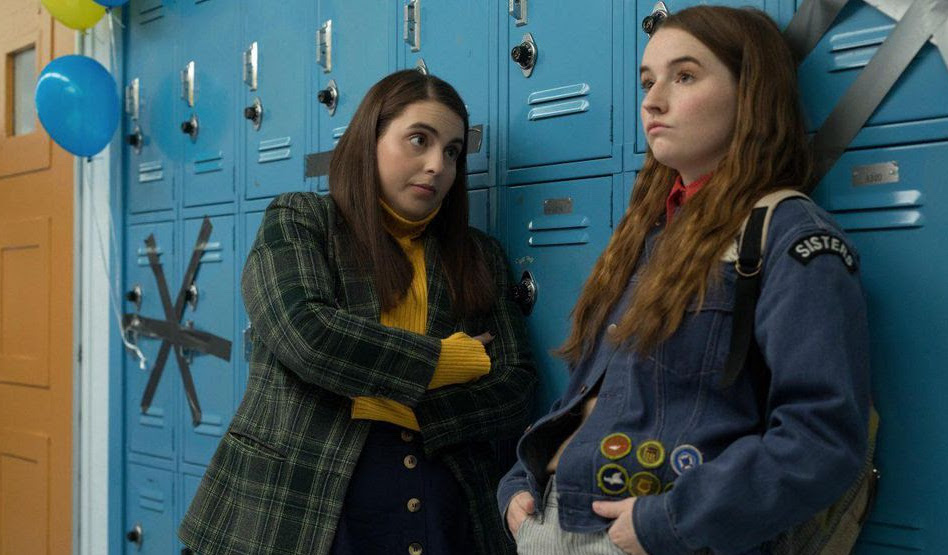
“Booksmart”
“Booksmart” is a raucous celebration of teen girls and a tribute to the invaluable gift of having a BFF.
Olivia Wilde’s feature directorial debut tells the story of Amy (Kaitlyn Dever) and Molly (Beanie Feldstein), overachievers who are taking on their most ambitious undertaking yet: on the eve of their high school graduation, the pair come to the realization that they’ve spent far too much time and energy on getting good grades and not nearly enough on partying, so they vow to cram four years of fun into one night.
Hi-jinks ensue, including an especially memorable — and, unfortunately, controversial — sex scene between Amy and a classmate which marks her first hookup with a girl.
Amy and Molly are platonic soulmates, and it’s a joy to be their third wheel. It’s a rare treat to see teen girls treated with so much love and respect by filmmakers. (LB)
“Honey Boy” – Directed by Alma Har’el
Described by director Alma Har’el as “a meta-cathartic coming-of-age story,” “Honey Boy” is written by Disney Channel alum Shia LaBeouf and inspired by his own life. The Sundance winner takes place over the span of a decade and sees Otis (Lucas Hedges), a former child star, in rehab and struggling to make sense of his relationship with his father, James (LaBeouf), an alcoholic rodeo clown. The film jumps between the present and the past, with Noah Jupe playing a young Otis.
“Honey Boy” is not an easy film to watch. Otis’ relationship with his father is totally believable, and totally heartbreaking. Desperate for his father’s approval and love, the child actor senses that James’ only reason for sticking around are the checks he collects on Otis’ behalf. It’s no surprise that their dynamic leaves Otis with PTSD.
“I made this film for all children of alcoholics because they are all my brothers and sisters,” Har’el told us. “I think that there are themes of masculinity and the expectations our fathers have of it, the mythological figures in our lives, the effects of addiction on second-generation, and the thin line between being ourselves and performing ourselves for others.”
“Honey Boy” explores these themes in a thoughtful, artistic way without feeling preachy. Given LaBeouf’s public persona and infamous performance art, some may be hesitant to give the film a chance, but they’d be missing out on a brutally honest, brave, and heartfelt portrait of a father and son. (LB)
Read Women and Hollywood’s interview with Alma Har’el.
“Late Night” – Directed by Nisha Ganatra; Written by Mindy Kaling
In “Late Night,” Mindy Kaling brings her own experiences of being the stigmatized “diversity hire” to the big screen, with the help of director Nisha Ganatra and co-star Emma Thompson. The Sundance hit is about two women trying to make their mark on the late-night comedy scene. Kaling’s Molly is a comedy fan with no real professional experience who lands a gig on Katherine Newbury’s (Thompson) talk show, so the latter can claim her writing staff isn’t entirely white and male.
“Late Night” itself is a comedy but its plot deftly weaves in darker subject matter, such as depression, taking care of a chronically ill spouse, and the tensions of the culture wars. Most of Molly’s (white male) colleagues admittedly half-ass their job, but they’re loathe to accept anyone new to their ranks. Most of Katherine’s staff would probably describe themselves as progressive, but they’re still convinced Molly’s hiring is a zero-sum game: if she’s in, they’re out. That’s what it comes down to, even as they dress up their concerns as a belief in meritocracy.
Molly does eventually prevail, as does Katherine. “Late Night” as a whole is a fun look at what our world would be like if inclusivity were prioritized and women were actually hired to host late-night TV. It’s a fantasy, but one we’re fighting to make a reality. (RM)
Read Women and Hollywood’s interview with Nisha Ganatra.
“Clemency” – Written and Directed by Chinonye Chukwu
“Clemency” sees Alfre Woodard gives a career-defining performance as Bernadine Williams, a prison warden in the midst of a moral crisis. She has spent her life contributing to a system that incarcerates mostly young men of color, and also condemns them to death. Bernadine is at a crossroads. She is struggling, wondering what she is doing, what we, as a culture, are doing.
“Clemency” is an urgent look at the toll the prison industrial complex takes on all the souls who are a part of it. (MS)
Read Women and Hollywood’s interview with Chinonye Chukwu.
“Woman at War”
Halla (Halldóra Geirharðsdóttir) is a seemingly average Icelandic woman. She’s a choir director trying to adopt an orphan from Ukraine. But behind her apparently normal life, Halla has become a stealth eco-terrorist using a bow and arrow to knock down power lines and sabotage development in the countryside. At first the terrorism is dismissed. But as she becomes bolder and causes more damage, the authorities double down on trying to capture the anonymous eco-warrior who is fighting for a greener future. (MS)
“Little Woods” – Written and Directed by Nia DaCosta
It’s easy to wax philosophic about class inequality, reproductive rights, criminal justice, and the opioid crisis when they don’t personally affect you, when they’re not visible in your life. Nia DaCosta’s feature directorial debut, “Little Woods,” demands that its main characters, two sisters struggling to make ends meet, be seen — not as symbols, not as stats, but as people with needs and aspirations, yet not enough options.
Ollie (Tessa Thompson) and Deb (Lily James) work their themselves ragged and still can’t afford to keep their late mother’s house from foreclosure and, in Deb’s case, to terminate a pregnancy. A common conservative line about poverty is that those who are poor simply aren’t doing what they’re “supposed” to do — i.e. working, saving money, and fulfilling the American Dream. Well, Ollie and Deb are doing what they’re supposed to be doing: the paroled Ollie is working legit jobs and following the rules of her probation to a T, and Deb is trying to get her degree and saving every extra cent for her son. They’re playing by the rules and coming up short, so they decide to try something else.
Both a thriller about good people doing the wrong things for the right reasons and a drama condemning the way America treats its rural and lower-income communities, “Little Woods” sticks with you. Yes, Ollie and Deb are fictional, but they have millions of real-life counterparts: women who, through no fault of their own, are falling through the cracks. (RM)
Read Women and Hollywood’s interview with Nia DaCosta.
“Always Be My Maybe” – Directed by Nahnatchka Khan; Written by Ali Wong, Randall Park, and Michael Golamco
Nahnatchka Khan’s first feature offers so many amazing things in one package: a mini “Fresh Off the Boat” reunion, a starring vehicle for comedienne extraordinaire Ali Wong, a bonkers Keanu Reeves cameo, and a culturally specific, universally enjoyable love story.
This Netflix hit offers common rom-com tropes — childhood sweethearts reconnecting as adults, class differences, wise friends and family spouting advice — but makes them feel fresh. For instance, Sasha (Wong) and Marcus (Randall Park) grew up together and had their first sexual experience with one another. Yet they don’t instantly fall back into their old dynamic when they meet again later on. In fact, they kind of get on each other’s nerves. They have to make a conscious decision to look past each other’s flaws, renewing their friendship and rekindling their romance in the process.
Most notable, however, is how work affects Sasha and Marcus as a couple. Sasha is a workaholic, ambitious chef, while Marcus is content holding down a day job and making music with his band when he feels like it. And that’s okay. Sasha doesn’t pressure Marcus to do more, nor does Marcus make Sasha feel guilty for being passionate about her career. The rom-com-required threat to their relationship is more a matter of geography — should Marcus move to New York with Sasha? — than anything else.
On paper, the beats of “Always Be My Maybe” seem so ordinary. But, even in 2019, a film where the female lead’s work is more of a plot point than her male counterpart’s is incredibly rare. That in itself makes the movie worth checking out. Its warmth and humor are just icing on the cake. (RM)
“A Beautiful Day in the Neighborhood” – Directed by Marielle Heller
Let’s face it: the world is a hot mess. That’s one of the many reasons to see “A Beautiful Day in the Neighborhood.” It is the perfect antidote to our current times. It’s a reminder — for those of us old enough to remember — of a time when things weren’t this insane. When we weren’t running every second of every day. When we weren’t constantly on our devices.
The film is based on Tom Junod’s article about meeting Fred Rogers. Many of us grew up with Mister Rogers. He discussed tough issues with kids and helped us understand the world a bit better. He is the symbol of being a good, solid person. Who cares about others. Who believes in people.
Marielle Heller’s third movie in five years — that in itself is a feat — brings us the impeccably cast Tom Hanks as Mister Rogers. And yet the film is not about Mister Rogers: it is about his teaching journalist Lloyd Vogel (Matthew Rhys) how to love and live. “A Beautiful Day in the Neighborhood” slows us down and reminds us that connecting with people, looking them in the eye, listening to them, is something valuable. The film is much-needed on-screen comfort food. (MS)
Read Women and Hollywood’s interview with Marielle Heller.
“Blinded by the Light” – Directed by Gurinder Chadha; Written by Gurinder Chadha, Paul Mayeda Berges, and Sarfraz Manzoor
Gurinder Chadha’s latest is joyful, yet political, genre-bending crowd-pleaser. Set in the ‘80s, the musical comedy centers on a Pakistani-British teen discovering the wonders of Bruce Springsteen amidst the rise of the far-right National Front and Thatcherism. Like Chadha’s earlier film, the classic “Bend It Like Beckham,” “Blinded by the Light” explores the tensions between Eastern and Western traditions, the older generations and the younger, and duty and passion via an immigrant family.
“Blinded by the Light,” which scored the biggest deal at Sundance this year, is simultaneously a fun romp that will give you Springsteen earworms for days and a drama emphasizing that the rise of contemporary xenophobia and racism isn’t anything new — it’s history that’s repeating itself because it hasn’t been fully reckoned with. That might make the film sound like a cinematic oxymoron, but it’s not. As Chadha herself told us, “With all of my films, I want to show how similar we are to people that we thought were different to us. I want audiences to feel a human connection to my characters and to leave feeling that the world is not only an unequal place full of problems, but also a joyous world where there is always the possibility of transcendence.” (RM)
